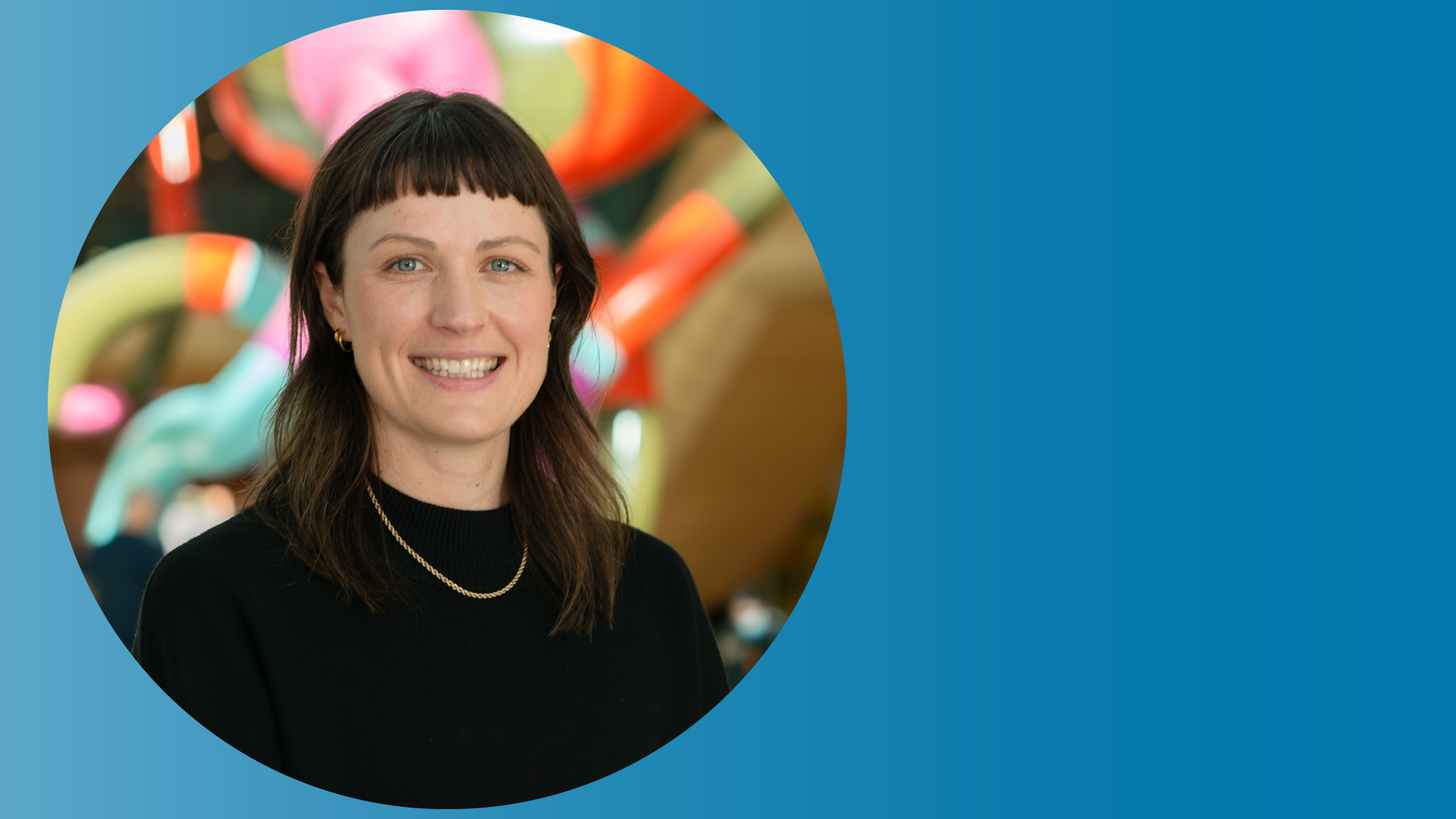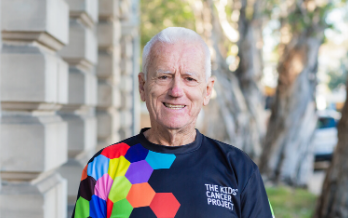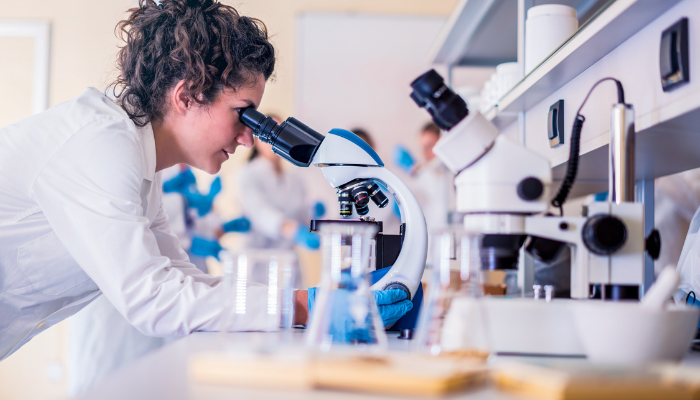Col Reynolds Fellow, Dr Michelle Tennant

Recipient: Dr Michelle Tennant
Institute: Murdoch Children’s Research Institute (MCRI)
Funding: $508,299 September 2024 - August 2027
Dr Michelle Tennant is a clinical psychologist at The Royal Children’s Hospital’s, Children’s Cancer Centre, and is a clinical researcher with the Murdoch Children’s Research Institute.
Over the past nine years, Dr Tennant has been dedicated to reducing patient distress and improving quality of life outcomes. Her research interest is digital health innovation, including using virtual reality to deliver therapeutic interventions.
Dr Tennant spoke about being selected as one of the 2024 Col Reynolds Fellows and the impact of The Kids’ Cancer Project’s generosity in reducing anxiety and increasing understanding for kids with cancer undergoing radiation therapy.
What inspired you to pursue a career in childhood cancer research?
In 2014 I was undertaking post-graduate studies to become a clinical psychologist when I saw a job ad for a research assistant at the Murdoch Children’s Research Institute (MCRI). Not having the necessary work experience for the job, I convinced the team to take me on as a volunteer and from then on, I was able to work with families in the intensive care and cancer wards at the Royal Children’s Hospital. Ten years later, in my capacity as a psychologist in the Children’s Cancer Centre, I work on research to help allay fears in children undergoing cancer treatment.
What is your current childhood cancer research project?
Thanks to the Col Reynolds Fellowship, my research team and I plan to create, implement, and evaluate how an immersive virtual environment can prepare childhood cancer patients for essential radiation treatment by building their understanding and confidence to undertake procedures before treatment begins.
This is because radiation therapy can be a frightening experience for kids who must wear masks and stay still during the entire procedure. I’ve seen how anxiety, fear, and reluctance can make treatment adherence challenging, and the side effects of this treatment are also significant.
Thanks to the incredible advances in technology and better affordability of devices, digital interventions offer an engaging and effective way to manage psychological distress during treatment. Virtual Reality (VR) offers a new way for children to experience radiation therapy in a three-dimensional environment, making it possible for them to feel present and safely experience a treatment scenario before their first session.
I hear you’ve done a preliminary study already! Could you talk us through it?
A study conducted by both our team and the Peter MacCallum Cancer Centre explored the usefulness of VR mobile technology in preparing kids aged between 7 and 18 years for radiation therapy by virtually exposing them to actual treatment procedures.
The results were impressive. As opposed to a meeting with a radiation oncologist where patients only recalled two-to-three steps, the VR simulation resulted in an increase in procedural knowledge in all young patients along with a reduction in anxiety.
RAD-VR as we term the program, has the potential to influence quality-of-life outcomes in the longer term. By reducing a child’s distress, staff can engage more positively with families and patients, further changing their experience of care and reducing the psychological burden of treatment, while additionally providing benefits to parents and families by having a child who experiencing duress.
With that in mind, what is your vision for the future?
Our vision for the RAD-VR program is to be embedded in routine paediatric oncology radiation care. To enable this, RAD-VR needs to be implemented and tested in a real clinical environment, with direct user feedback from end-users (consumers and clinicians) used to inform iterative improvements to the intervention. We ultimately hope that this will ensure the intervention is fit for purpose and will continue to be utilised as standard care following the completion of the study.
How does it feel to be a recipient of the Col Reynolds Fellowship?
I am absolutely thrilled to be a recipient of the Col Reynolds Fellowship. I even shed a few tears when Col himself shared the news with me. Hearing Col’s enthusiasm for the RAD-VR project was very validating knowing the effort and sacrifices it has taken to get me to where I am today.
My vision is to become a research leader in psycho-oncology care for children and young people with cancer through the application of innovative health technologies, such as virtual reality (VR) to reduce treatment stress, promote healthcare engagement, and improve quality of life (QoL) during active treatment and into survivorship.
I feel truly inspired and proud right now to be joining the family, as Col said, as a recipient of the Col Reynolds Fellowship and knowing I have the full endorsement of The Kids’ Cancer Project Research Advisory Committee.
Without the support of our incredible donors, our charity would not be able to fund researchers much like yourself. Would you like to share a message of thanks to those donors?
I can’t begin express how profoundly grateful I feel towards The Kids’ Cancer Project’s community of donors. As a recipient of this funding, you are supporting me in leading the development of the RAD-VR program that will be accessible to all childhood cancer patients referred for radiation therapy at the Peter MacCallum Cancer Centre.
The support from The Kids’ Cancer Project’s community of donors shows genuine care about our cause and the research work we do. My team and I thank you so very much, as without your support this work would simply not be possible or carried out.
Find out more about the Col Reynolds Fellowship
With an investment of over $7.6 million, The Kids’ Cancer Project is ensuring that some of the best and brightest young researchers in Australia can further their careers and most importantly, their impact on childhood cancer research.


Read more from past recipients
From a field of outstanding candidates across Australia, The Kids’ Cancer Project has funded the next generation of childhood cancer researchers. Their science-backed research is sure to deliver breakthroughs across a range of areas relating to childhood cancer.

